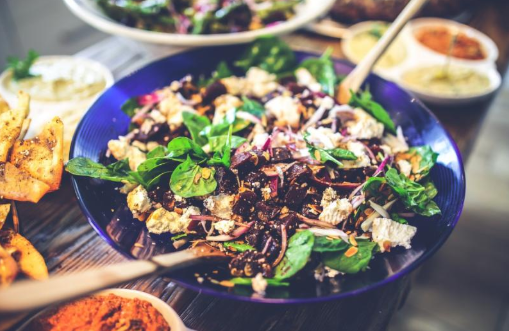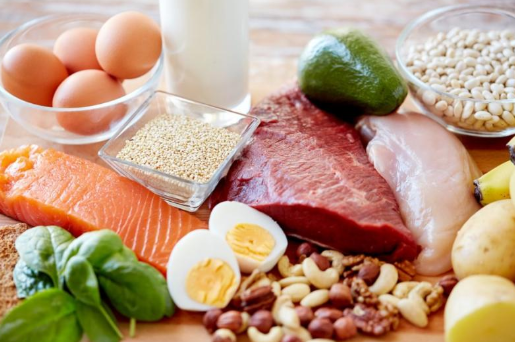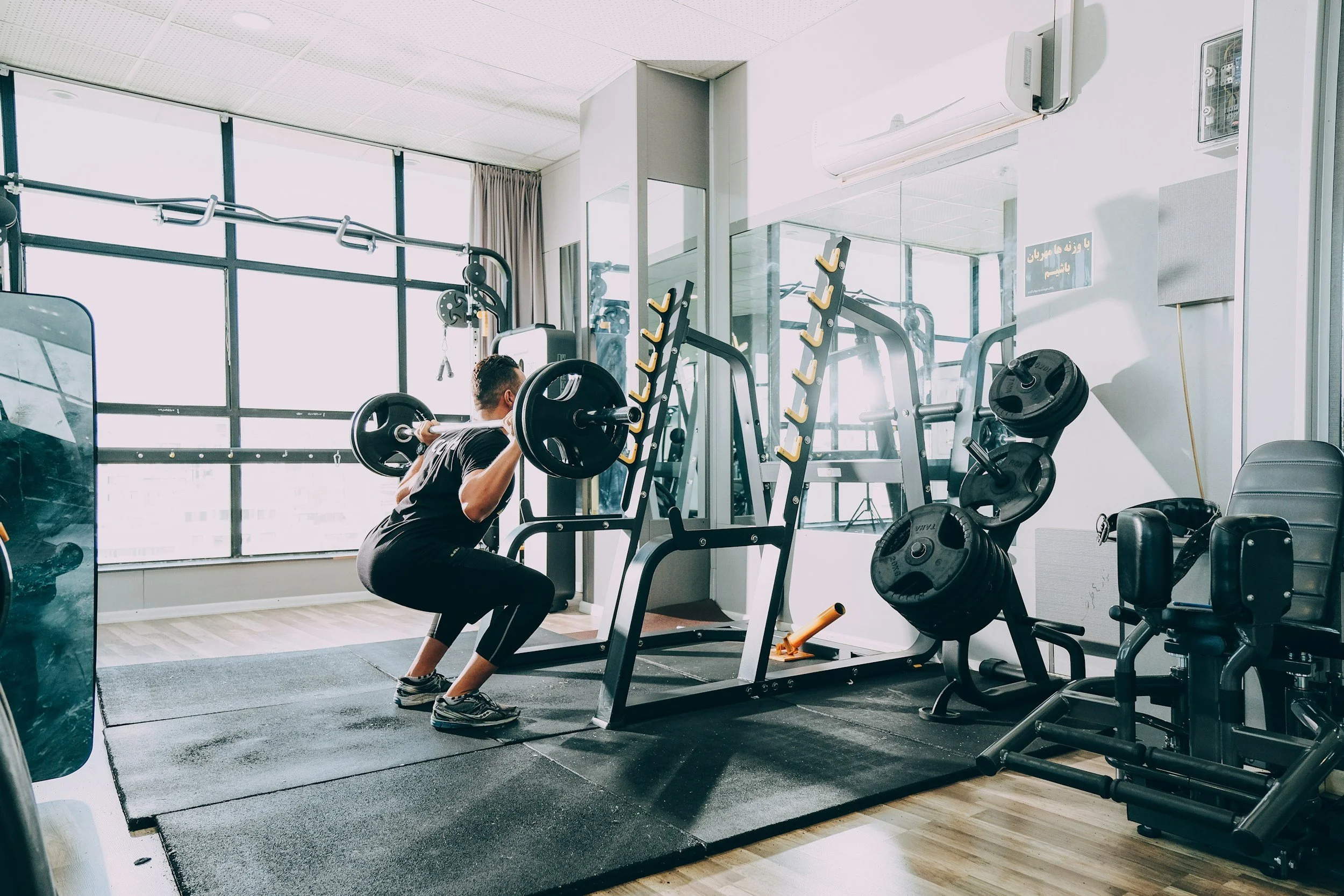All About Fat Loss: A Simple Guide for Real-Life Results
For most people who walk into bStrong in Bellevue or Redmond, the goal sounds like this:
“I want to lose fat, feel better in my clothes, and have more energy.”
The problem is, the world makes fat loss feel way more complicated than it needs to be. Fad diets, extreme workouts, and “secret hacks” can leave you burned out and frustrated.
At bStrong, we’re interested in sustainable fat loss:
Keep or build muscle
Lose body fat at a realistic pace
Still live a normal life with work, family, and weekends
This guide will walk through the basics of fat loss in plain language and show you how we approach it inside our small group personal training program.
What “Fat Loss” Actually Means
When we say “fat loss,” we’re talking about:
Losing body fat
Keeping as much muscle as possible
Supporting energy, strength, and long-term health
This is different from basic “weight loss,” which can come from:
Fat
Muscle
Water
You can lose weight in a way that actually makes you look and feel worse: weaker, lower energy, and more likely to regain fat later.
Fat loss done well is slower, but it’s much more sustainable.
If you want to go deeper on the difference between weight loss and fat loss, check out Weight Loss vs. Fat Loss: Why the Difference Matters.
The 3 Big Levers for Fat Loss
There are three main levers you control:
Nutrition
Strength training and movement
Recovery and stress
You don’t need to be perfect with any of them, but you do need to be consistently pretty good with all three.
Nutrition: The Foundation of Fat Loss
You can’t out-train a consistently chaotic diet. The goal is better patterns, not rigid rules.
Focus on these simple priorities most days:
Prioritize Protein
Protein helps you:
Stay full longer
Maintain or build muscle while you lose fat
Recover from workouts
Easy protein options:
Chicken, turkey, lean beef
Greek yogurt, cottage cheese
Eggs
Fish
Tofu, tempeh, edamame
Beans and lentils (especially when paired with other protein sources)
A simple rule:
Try to include a meaningful source of protein at each meal, especially breakfast and dinner.
Build Mostly Balanced Meals
Most of your meals should look something like:
1 serving protein
1 serving carbs
1–2 servings vegetables
Some healthy fats
Good carb sources:
Rice, potatoes, oats, quinoa
Fruit
Whole grain bread or wraps
Good fat sources:
Olive oil, avocado, nuts, nut butters
Seeds
Fatty fish
You don’t need to count every calorie. Just use your plate:
Half plate: protein + veggies
Quarter: carbs
Quarter: fats and “fun” foods
Clean Up the “Easy Calories”
These are the things that quietly add up:
Sugary drinks
Mindless snacking at night
“Bites and tastes” while cooking or cleaning up
Alcohol
You do not have to eliminate these completely. You just need to:
Reduce how often
Reduce how much
If you want more detail on building simple, realistic meals, read All About Nutrition: The Basics.
2. Strength Training and Movement
For sustainable fat loss, your training should help you:
Keep or build muscle
Burn calories
Feel strong and capable in daily life
Why Strength Training Matters
Strength training helps you:
Maintain muscle while you lose fat
Keep your metabolism healthier
Improve how you look and feel as fat comes off
At bStrong, we focus on:
Full body strength 2–3 days per week
Controlled, coached lifts
Progressing slowly over time
What About Cardio?
Cardio is a supporting tool, not the main strategy.
Walking is underrated and often the easiest place to start
Interval work can help once you have a base of strength and fitness
A simple, realistic approach:
Strength train 2–3 times per week
Walk on most days you’re not in the gym
Add short, intentional bursts of harder conditioning when it makes sense
3. Recovery, Sleep, and Stress
Recovery and stress can quietly make or break fat loss.
When sleep and stress are off, you’ll often notice:
More cravings
Lower willpower
Higher hunger, especially at night
Sleep Basics
Aim for:
7–9 hours of sleep most nights
A consistent bedtime and wake time when possible
Simple sleep fixes:
Put your phone away 20–30 minutes before bed
Keep your room cool and dark
Create a small “wind-down” habit (stretching, reading, or breathing)
For a deeper look at how sleep ties into recovery and performance, see Why Sleep Is Your Superpower.
Stress and Fat Loss
Your body doesn’t separate “gym stress” from “life stress.”
When stress is always high, it’s easier to:
Skip workouts
Reach for quick, ultra-processed foods
Feel stuck, even when you’re “trying”
Simple stress supports:
5–10 minute walk outside when you can
5 slow breaths before meals or bed
Protecting your training appointments in your calendar
If your stress, sleep, and nutrition are a mess, fat loss will feel harder than it needs to.
What This Looks Like at bStrong
Here’s how we tie all of this together inside bStrong.
Coached Strength as the Base
Small group personal training, 2–3 times per week
Full body strength sessions built around key movements
Coaches adjusting loads and exercises based on how you feel
Supportive Nutrition Habits
We’re not turning you into a bodybuilder. We’re helping you create doable habits:
Simple guidance on building balanced meals
Ideas for protein and grab-and-go options that fit busy schedules
Coaching that focuses on what you can add, not just what to cut
Recovery and Consistency
We care about:
How you’re sleeping
How stressed you are
How your body feels
We use our Consistency System to help you find a training rhythm that fits your real life instead of demanding perfection.
How Beginners Can Apply This Today
You don’t need a full “fat loss plan” to start. Pick 1–2 of these and actually do them for the next 2–4 weeks.
Add protein to breakfast
Example: Greek yogurt, eggs, or a protein smoothie
Walk 10 minutes most days
Before or after work, or after dinner
Clean up drinks
Swap one sugary or alcoholic drink for water or a zero-calorie option
Build a “default dinner”
Protein + veggie + carb you like
Repeat this 3–4 nights a week
Go to bed 20 minutes earlier
Phone away, lights down, simple wind-down
Once those feel normal, you can layer on more changes.
What To Expect in 4–8 Weeks
If you’re consistent with a few simple habits, here’s what many people notice in 4–8 weeks:
Clothes feel a bit looser
Energy is more stable across the day
Workouts feel stronger and more controlled
Cravings are less intense or easier to manage
You feel more “in charge” of your routine
The scale might not move dramatically, especially if you’re newer to strength training, but your body composition and confidence will start shifting.
Is This For You?
This guide is especially for you if:
You want to lose fat without living on a diet
You’re busy with work, family, or commuting
You’re open to strength training but don’t want to figure it out alone
You’ve tried extreme diets and don’t want to do that again
You live or work near Bellevue, Redmond, or Kirkland and want clear, simple coaching
If that’s you, you’re exactly the kind of person we built bStrong for.
Ready To Work On Fat Loss With Support?
You don’t have to guess your way through fat loss.
At bStrong, we combine:
Coached small group strength training
Simple nutrition guidance focused on real life
Support for recovery and consistency, not perfection
If you’re in or near Bellevue, Redmond, or Kirkland and want help losing fat in a realistic, sustainable way, our 3-week Trial is the best first step.
Stay Strong!
Your bStrong Team



